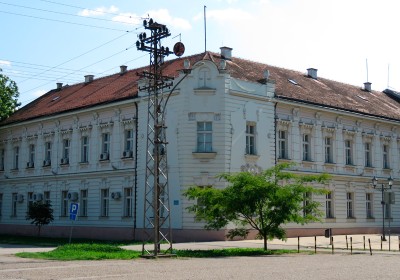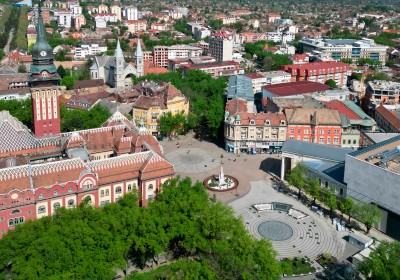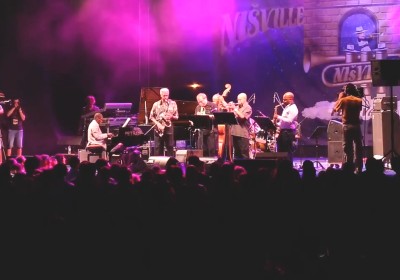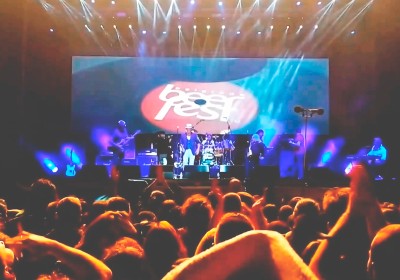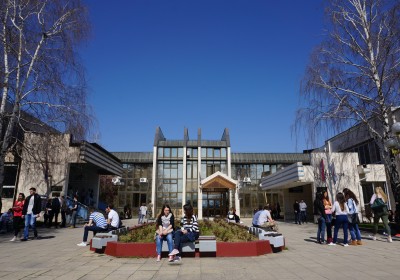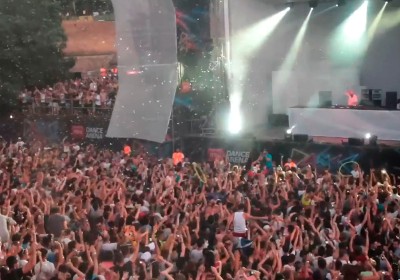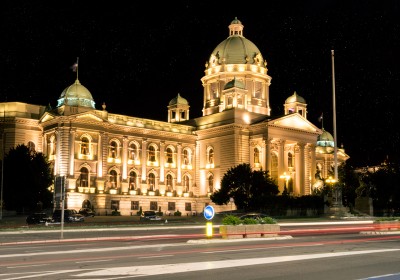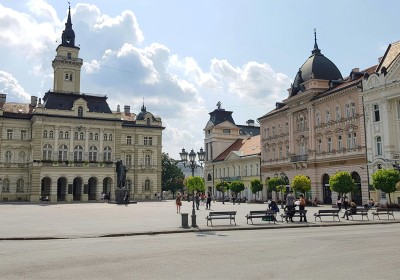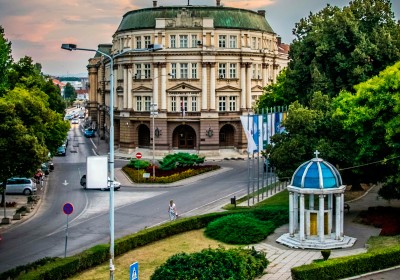Guca Festival: The world trumpet Capital
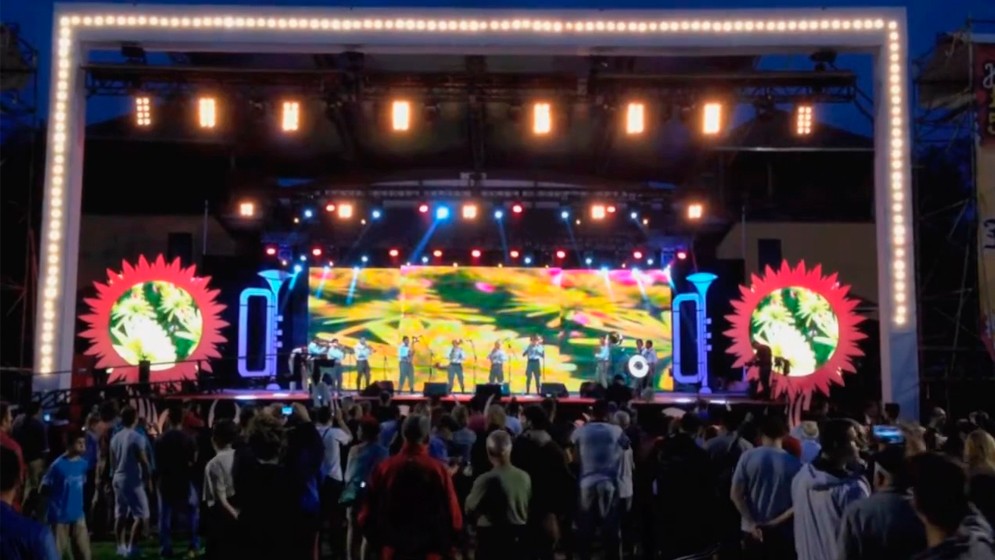
1. Guca Trumpet Festival
The Guča Trumpet Festival, held annually in the small Serbian village of Guča, is a vibrant celebration of Balkan brass music that has grown into one of the largest and most unique music events in the world. Known locally as the Dragačevo Assembly of Trumpet Players, this festival transforms a sleepy village of around 2,000 inhabitants into a bustling hub of music, dance, and Serbian culture, attracting hundreds of thousands of visitors from across the Balkans and beyond.
What sets Guča apart from other music festivals is its deep-rooted connection to Serbian tradition and its focus on the trumpet, an instrument that has played a significant role in Serbian culture for nearly two centuries. Unlike commercialized music events, Guča remains free to attend and retains its authentic character, offering visitors a genuine glimpse into the heart of Serbian musical heritage. The festival’s ability to blend competition, celebration, and cultural immersion has earned it recognition as the “world trumpet capital,” making it a must-visit destination for music enthusiasts and cultural explorers alike.
History and Origins
The Guča Trumpet Festival has its roots in Serbia’s rich musical tradition, with the trumpet’s importance dating back to the 19th century. In 1831, Prince Miloš Obrenović ordered the formation of the first military band, marking the beginning of the trumpet’s reign in Serbian culture. Over time, the instrument became an integral part of Serbian rural life, accompanying everything from weddings and baptisms to harvests and funerals.
The festival itself was born on October 16, 1961, in the churchyard of the Church of Sts. Michael and Gabriel in Guča. Initially a modest gathering with just four competing orchestras, it was the brainchild of Blagoje Radivojević, a reporter from the newspaper Politika. Despite political sensitivities of the time, the event gradually grew in scale and influence. The first winner was local musician Desimir Perišić, nicknamed “Dragačevo’s Harry James,” who remains the only local to have won the competition.
From these humble beginnings, the Guča Festival has evolved into a cultural phenomenon. By the 1970s, it gained wider popularity and media attention, described as a showcase of “a different, colorful, village Serbia.” Over the decades, it has become not just a trumpet competition, but a celebration of Serbian culture, attracting folk dancers, artists, and craftspeople. Today, it stands as a testament to the enduring appeal of traditional music in the modern world, drawing visitors from across the globe to experience the unique sound of Balkan brass.
Festival Basics
The Guča Trumpet Festival, also known as the Dragačevo Assembly of Trumpet Players, typically takes place over a long weekend in early to mid-August. This three-day extravaganza transforms the small village of Guča, located in the Dragačevo region of western Serbia, into a vibrant celebration of music and culture.
Guča itself is a picturesque village nestled in the Serbian countryside, about a three to five-hour bus ride from Belgrade. During most of the year, it’s home to around 2,000 residents, but during the festival, the population swells dramatically. Recent years have seen attendance figures ranging from 300,000 to 600,000 visitors over the course of the event, creating a lively and bustling atmosphere in this otherwise tranquil setting.
One of the most appealing aspects of the Guča Festival for travelers is that it’s completely free to attend. This accessibility, combined with its authentic character and lack of commercialization, sets it apart from many other large-scale music festivals. Visitors could freely roam the village streets, enjoy impromptu performances, and soak in the festive atmosphere without the need for tickets or wristbands. This open format contributes to the festival’s unique charm and allows for a more immersive cultural experience. These core aspects of the event make it an attractive option for travelers looking to experience authentic Serbian culture and world-class brass music.
Music and Performances
The heart of the Guča Festival is its diverse and vibrant music, centered around the Balkan brass band tradition. The performances encompass a wide range of styles, from indigenous melodies and traditional kolos (fast-rhythm chain dances) to marches and the characteristic southern Serbian čoček dances. Many of these tunes have their roots in Ottoman military marching music or Romani (Gypsy) traditions, creating a unique and energetic musical landscape.
Throughout the festival, visitors can enjoy performances by both amateur and professional brass bands. Many of these bands consist of Romani musicians, renowned for their musical talent throughout the Balkans. The festival has also featured internationally acclaimed artists such as Goran Bregović, Emir Kusturica and the No Smoking Orchestra, and trumpet legend Boban Marković. Some performances even include artists inspired by Balkan brass music but from different genres, like Shantel or Gogol Bordello, adding to the festival’s musical diversity.
What makes the Guča performances truly special is their authenticity. Many of the musicians are self-taught virtuosos who play by ear, relying on their imagination and musical memory. This spontaneous, heartfelt approach to music-making creates an atmosphere that’s both genuine and electrifying. Whether it’s a scheduled performance on the main stage or an impromptu street concert, the music at Guča is guaranteed to move you – both emotionally and physically, as it’s nearly impossible to resist the urge to dance when surrounded by these infectious Balkan rhythms.
Festival Program
The Guča Trumpet Festival typically unfolds over three action-packed days, each offering a unique blend of music, competition, and cultural events. The festival officially kicks off on Friday with an opening ceremony at the trumpet monument, followed by various exhibitions and the first concerts at the Cultural Center stage and the main stadium. The day concludes with performances by trumpet masters and finalists from previous years.
Saturday brings a full day of entertainment, starting with the traditional “wakening call of the trumpets” at dawn. The day’s program includes performances by youth trumpet orchestras, cultural and artistic clubs, and international guests. As night falls, the stadium hosts a showcase of previous winners and presentations of masters’ letters to accomplished performers, culminating in concerts by renowned trumpet orchestras.
The festival reaches its crescendo on Sunday with the highly anticipated trumpet competition. The day begins with a festive parade and a traditional Dragačevo wedding demonstration. The afternoon is dedicated to the final competition of trumpet orchestras, where performers compete for the coveted “Golden Trumpet” award and other honors. The festival concludes with a gala concert featuring a folk orchestra and guest singers, followed by the announcement of winners and a celebratory performance by the newly crowned champions. Throughout all three days, spontaneous performances and revelry fill the streets of Guča, ensuring there’s never a dull moment for festival-goers.

2. Guca Trumpet Festival: the streets of Guča
Festival Atmosphere
The atmosphere at the Guča Trumpet Festival is nothing short of electric, offering visitors a unique and immersive cultural experience. As you approach the village, you’re greeted by the sight of smoke from hundreds of grills blanketing the valley, and the sound of music filling the air. The streets come alive with spontaneous performances as roaming brass bands play for passersby, often leading to impromptu dancing and celebrations.
One of the most enchanting aspects of Guča is its ability to bring people together. Complete strangers join hands to perform traditional circle dances known as ‘kolo’ in the crowd, while professional dancers in traditional Serbian outfits showcase national folk dances on stage. The festival’s open and inclusive atmosphere encourages everyone to participate, whether by dancing, clapping along, or simply soaking in the joyous ambiance.
The Guča Festival is more than just a music event; it’s a celebration of Serbian culture and hospitality. Despite the influx of visitors, the festival maintains its authentic character, with a predominantly local Serbian crowd. This gives international visitors a genuine opportunity to immerse themselves in Balkan culture, make new friends from the region, and experience the warmth and exuberance of Serbian hospitality. The festival’s ability to create a space where music, tradition, and communal celebration intertwine is what makes the atmosphere at Guča truly unforgettable.
Food and Drink
The Guča Trumpet Festival is not just a feast for the ears but also for the taste buds, offering visitors a chance to indulge in traditional Serbian cuisine. Throughout the village, you’ll find numerous food stalls and outdoor grills serving up local delicacies. The air is filled with the tantalizing aroma of grilled meats, a staple of Serbian cuisine.
Popular dishes include ćevapi (grilled minced meat sausages) and pljeskavica (spiced Serbian-style hamburgers). For those visiting with a group, it’s common to pre-order a whole grilled suckling pig, a local specialty that’s carved and shared among friends. Vegetarian options might be limited, so those with dietary restrictions may need to plan accordingly.
When it comes to drinks, beer is the beverage of choice for many festival-goers, with local brands like Jelen being readily available. For a more traditional experience, try rakija, a potent Balkan spirit made from fermented and distilled fruit. The best part? Prices for both food and drinks are extremely reasonable, often just slightly higher than what you’d pay in a typical small Serbian town. This affordability adds to the festival’s appeal, allowing visitors to fully immerse themselves in the culinary aspects of Serbian culture without breaking the bank.
Practical Information for Visitors
For international visitors, the most convenient way to reach Guča is to first travel to Belgrade, which is well-connected to major European cities by air. From Belgrade, you can take a bus to the city of Čačak and then transfer to another bus to Guča, a journey that takes about 5-6 hours in total. Alternatively, renting a car or arranging a private transfer can provide more flexibility and reduce travel time.
Accommodation options in Guča are varied but can be limited due to high demand during the festival. The most popular choice is camping, either at the festival campground in Guča or at sites in the surrounding area. For those preferring more comfort, there are a handful of local hotels and guesthouses, though these tend to book up months in advance. Another option, particularly suitable for groups, is to rent a room or an entire house in the village. Some locals even offer unfurnished houses where guests can sleep on mattresses they bring themselves.
When packing for Guča, prepare for warm summer weather but also bring some layers for cooler evenings. Comfortable shoes are a must for dancing and navigating the village streets. Cash is king at the festival, so make sure to bring enough Serbian dinars for food, drinks, and souvenirs. While the festival itself is free, it’s wise to budget for accommodation and transportation. Lastly, a basic understanding of Serbian phrases can go a long way in enhancing your experience and interactions with locals, though many younger Serbians speak English.
Beyond the Music
While the Guča Trumpet Festival is primarily known for its music, it offers a rich tapestry of cultural experiences beyond the performances. Throughout the village, you’ll find a vibrant “Street of Old Crafts” where local artisans showcase traditional Serbian handicrafts. This is an excellent opportunity to purchase unique souvenirs and witness age-old crafting techniques firsthand. Additionally, the festival hosts art exhibitions and a book fair, providing insight into Serbian visual arts and literature.
For those interested in Serbian traditions, the festival includes demonstrations of cultural practices such as a traditional Dragačevo wedding. You can also admire and even participate in a competition for the most beautiful national costumes, offering a colorful display of Serbian folk attire. These events provide a deeper understanding of Serbian cultural heritage and complement the musical aspects of the festival.
If you’re looking to extend your trip beyond Guča, the surrounding region offers several attractions. The nearby city of Čačak, about 30 kilometers away, is worth a visit for its historical sites. Nature enthusiasts might enjoy a trip to the Ovčar-Kablar Gorge, known for its beautiful landscapes and several medieval monasteries. For a unique experience, consider visiting the Stopića Cave, a karst cave system featuring impressive stalagmites and an underground waterfall. These excursions can provide a well-rounded Serbian experience, combining the festival’s cultural immersion with exploration of the country’s natural and historical treasures.
Conclusion
The Guča Trumpet Festival stands out as a truly unique cultural event, offering visitors an unparalleled blend of music, tradition, and Serbian hospitality. Its ability to transform a small village into a vibrant celebration of Balkan brass music, attracting hundreds of thousands of visitors, is a testament to the power of cultural heritage in the modern world.
What makes Guča particularly special is its authenticity. Unlike many commercialized music festivals, Guča remains true to its roots, providing a genuine immersion into Serbian culture. The free admission, the spontaneous street performances, and the warm interaction between locals and visitors create an atmosphere that’s hard to find elsewhere. As some have said about the unique trumpet playing style at Guča, “I didn’t know you could play trumpet that way.” As many visitors find, the infectious energy and joyous spirit of Guča have a way of staying with you long after the last notes of the trumpet have faded away, often inspiring return visits in the years to come.
- Stills adapted from the video "Sabor Trubaca, Guca, 2014, Guca Trumpet Festival" published on the YouTube channel "Marcin Kamiński". Original video licensed under CC BY 3.0. Modifications include cropping and color adjustment.
- Stills adapted from the video "Sabor Trubaca, Guca, 2014, Guca Trumpet Festival" published on the YouTube channel "Marcin Kamiński". Original video licensed under CC BY 3.0. Modifications include cropping and color adjustment.
